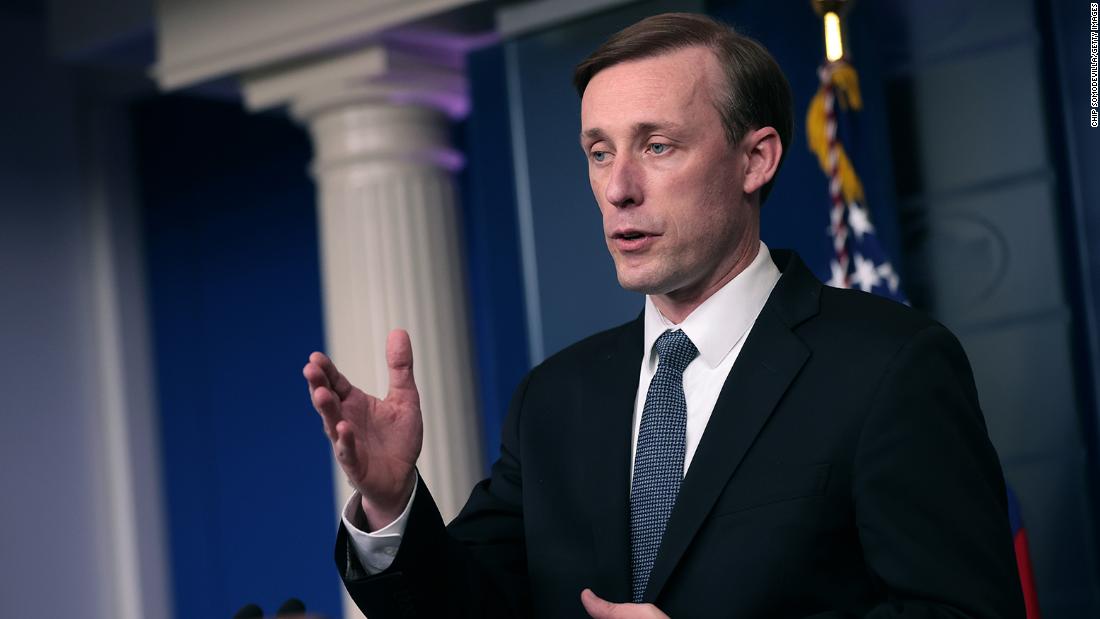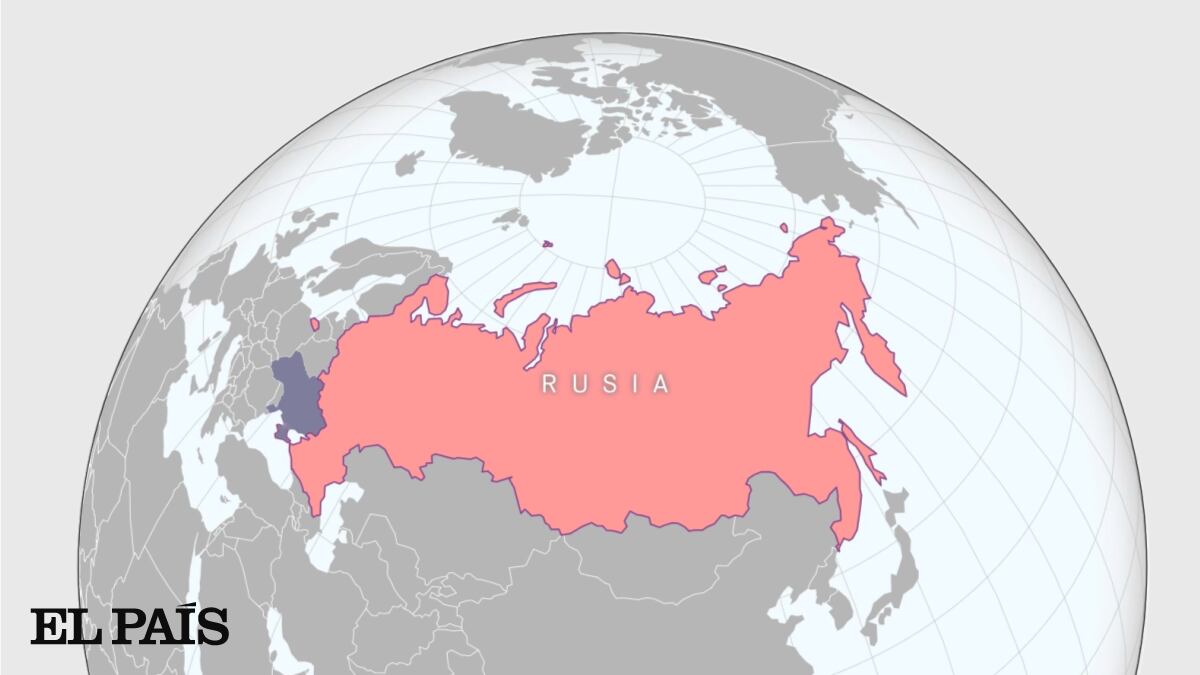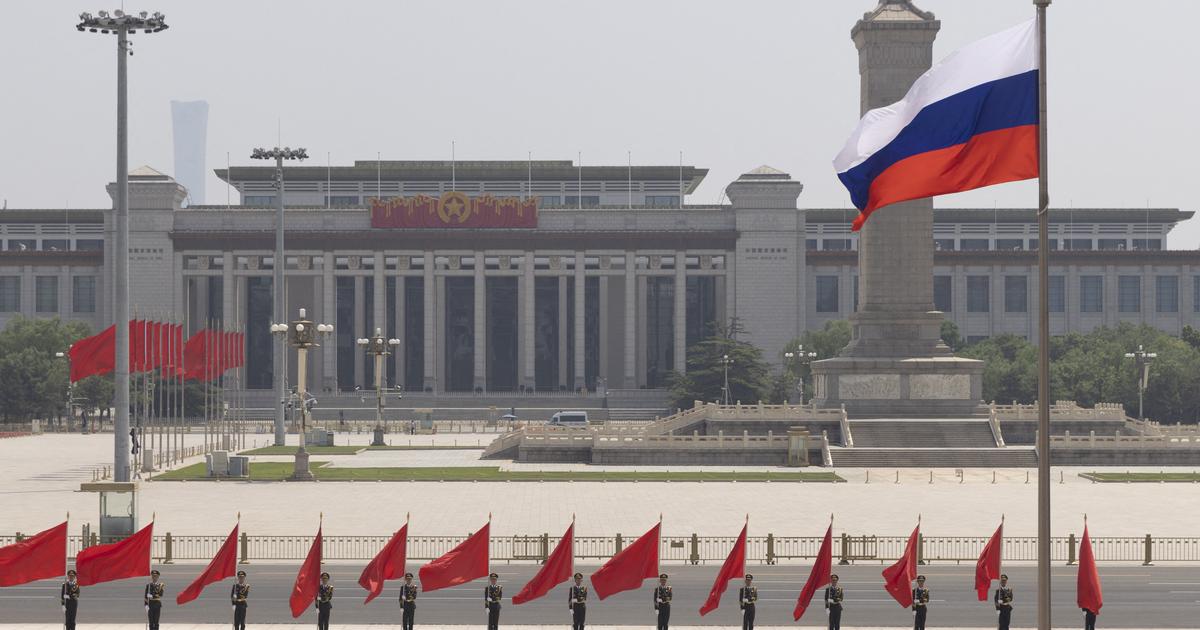Can China and Russia be allies in the invasion of Ukraine?
2:37
(CNN) --
The United States has information suggesting that China has expressed a willingness to provide Russia with requested military and financial assistance as part of its war in Ukraine, a Western official and a US diplomat told CNN.
The United States is passing on what it knows to its NATO allies.
It is not yet clear whether China intends to provide such assistance to Russia, US officials familiar with the intelligence told CNN.
But during an intense seven-hour meeting in Rome, a top adviser to US President Joe Biden warned his Chinese counterpart of "potential implications and consequences" for China should support be provided to Russia, a report said. senior administration official.
Russia-Ukraine War: breaking news and news of the invasion and negotiations
The series of events underscored growing concern among US officials about the budding partnership between Moscow and Beijing as Biden works to isolate and punish Russia for its aggression in Ukraine.
While officials have said that China's president was alarmed by what has happened since Russia invaded, there is little sign that China is prepared to cut off its support for Moscow entirely.
That leaves open a troubling possibility for US officials: that China could help prolong a bloody conflict that is killing more and more civilians, while cementing an authoritarian alliance in direct competition with the United States.
In a diplomatic cable, the United States conveyed to its allies in Europe and Asia that China had conveyed its willingness to help Russia, which requested military support.
The cable did not definitively say that assistance had been provided.
An official also said the United States warned in a communication that China would likely deny that it was willing to provide assistance.
advertising
Anti-Ukrainian War Protester Breaks Up Russian State News
China or Russia: what is the US diplomatic priority?
1:44
China doubts how to respond to Russia's requests
Among the assistance Russia requested were prepackaged non-perishable military food kits, known in the United States as "ready-to-eat meals" or MREs, according to two sources familiar with the matter.
The request underscores basic logistical challenges that analysts and military officials say have hampered Russian progress in Ukraine, and raises questions about the fundamental readiness of the Russian military.
Units deployed to the front lines have consistently outnumbered their supply convoys and open source reports have shown Russian troops raiding grocery stores for food as the invasion progressed.
One of the sources suggested that the food might be a request that China would be willing to comply with, because it would not be lethal assistance that the West would find deeply provocative.
The leadership of the Chinese Communist Party is not entirely in agreement on how to respond to Russia's request for assistance, one of the sources said.
Two officials said China's desire to avoid economic fallout may limit its appetite to help Russia.
Officials told CNN separately that Chinese President Xi Jinping was puzzled by how the war in Ukraine reinvigorated the NATO alliance.
"Some are really worried that their involvement could damage economic relations with the West, which China depends on," one of the sources said.
Officials are also monitoring whether China provides any economic and diplomatic relief to Russia in other ways, such as abstention votes at the United Nations.
In Rome, US National Security Adviser Jake Sullivan and a government delegation meeting with China's top diplomat Yang Jiechi "directly and very clearly raised" concerns about Chinese support "for Russia after the invasion, and the implications such support "would have for" China's relationship with the United States and its partners around the world, State Department spokesman Ned Price said.
"That includes allies and partners in Europe and the Indo-Pacific," Price said at a State Department briefing on Monday.
Russia-Ukraine War: breaking news and news of the invasion and negotiations
Did Russia ask China for military help?
1:25
Concern over escalating shelling in Kyiv
Concerns about China's possible involvement in the war arose as bombing intensified in Ukraine's capital Kyiv and Russia's military campaign moved west.
Still, signs remained that Russia's armed forces are being hampered by Ukrainian fighters, underscoring Russia's need for outside assistance.
Ukrainian forces have "effectively attacked Russian sustainment and logistics capabilities" in the war, a senior US defense official told reporters on Monday.
And the United States does not believe that Russia's missile attacks on a Ukrainian military training center in western Ukraine will affect US efforts to provide weapons shipments to the Ukrainian military.
Biden, who is working to rally international support for Ukraine, could soon travel to Europe to continue consulting with his allies there, people familiar with the plans said, though no trip had been finalized as of Monday.
His administration is also considering speeding up the resettlement of Ukrainian refugees with ties to the United States.
The US president may face increased pressure to help displaced Ukrainians soon: The nation's president, Volodomyr Zelensky, plans to address a joint session of Congress virtually on Wednesday.
Anti-Ukrainian War Protester Breaks Up Russian State News
Russia could use chemical weapons, says retired colonel 0:29
US watches how China responds to Russia's invasion of Ukraine
Addressing the meeting, US officials said they hoped Yang would portray China as a neutral partner willing to help facilitate talks between the two sides to end hostilities.
China has stepped up diplomatic efforts in recent days, including in a call last week between Xi and the leaders of France and Germany to signal a willingness to take a more proactive role in the crisis.
The United States has viewed such efforts with some skepticism, given China's recent closeness to Russia.
And over the weekend, US officials said they had information that Russia had asked China for military support, including drones, as its invasion proceeds more slowly than the Kremlin expected.
Both the Chinese and Russian governments publicly denied that the request had been made.
Sullivan told CNN on Sunday that China providing support to Russia is a "concern."
"We are also watching closely to see to what extent China actually provides any form of support, material or economic support, to Russia. It is a concern of ours. And we have communicated to Beijing that we will not sit idly by and allow any country compensate Russia for its losses from economic sanctions," Sullivan said.
US officials say they believe Xi has grown uneasy about the Russian invasion and the performance of Russia's military, which has experienced logistical and strategic setbacks since the invasion began more than two weeks ago.
Watching from Beijing, Xi was caught off guard that his own intelligence had failed to predict what happened, even though the United States had been warning of an invasion for weeks, the officials said.
"They may not have understood the full scope," Sullivan said on CNN on Sunday, "because it's quite possible that Putin lied to them, just as he lied to the Europeans and others."
The overwhelmingly global repudiation of Russia's actions has prompted China to weigh what damage its reputation might suffer from sticking with Russian President Vladimir Putin.
And an economic break with Europe or the United States could damage a Chinese economy that is already growing more slowly than it has in 30 years.
For all those reasons, US officials believe now is a time when it is imperative to engage with China as it determines how to proceed amid Russian aggression.
American and Chinese officials have been in regular contact in recent weeks, including in the run-up to Russia's invasion.
Price said the United States is "watching very closely the extent to which the PRC, or any other country, provides any form of support, whether it's material support, whether it's economic support, whether it's financial support to Russia."
"Any such support from anywhere in the world would be of great concern to us," he said.
Price declined to comment specifically on the diplomatic cable reports.
"We have communicated very clearly to Beijing that we will not sit idly by... We will not allow each country to compensate Russia for its losses," he added.
Price characterized the Chinese response to the Russian invasion of Ukraine as "ambivalent".
"I read a statement the other day from a PRC official saying that the situation is complicated. There is nothing complicated about this. It is open aggression," he said.
Russia tries to install pro-Kremlin officials in occupied cities, but Ukrainians resist
Why doesn't China get involved in the Ukraine war?
1:27
Russia's invasion of Ukraine throws its relationship with China into turmoil
Sullivan's meeting in Rome on Monday was originally intended as a follow-up to the nearly three-hour virtual summit between US President Joe Biden and Xi in November, which took place at the same time US officials began warning about a massive buildup of Russian troops along Ukraine's borders.
In that call, Xi warned Biden that dividing the world into competing blocs would "inevitably bring disaster," according to a Chinese reading.
Yet Russia's invasion has done more to align the world in competitive alliances than anything Biden has done aimed at bolstering American relations, an outcome for which US intelligence found Xi was also unprepared, believing in Instead, European economic interests would prevent countries from being willing to impose severe sanctions.
That dynamic has complicated a relationship that Xi and Putin declared "without limits" in a lengthy document in February, when Putin visited Beijing for talks and attended the opening ceremony of the Winter Olympics.
The US decision to organize a diplomatic boycott of the Games angered Xi, officials said, making Putin's presence at the stadium all the more important.
The evolution of China's response to the Russian invasion, from denying it would happen to avoiding public condemnation and then presenting itself as a possible mediator, has been closely monitored by the White House, which sees the potential of a Moscow-Beijing alliance with biggest concern.
CIA Director Bill Burns said last week that the association was based on "a lot of very calculated reasons."
A new "axis" forming in opposition to US-led efforts to bolster regional security has been in the works since before the war in Ukraine, including in the economic, political and military sectors.
But the United States does not see the partnership as fully developed, Director of National Intelligence Avril Haines told lawmakers last week.
"We see that we are not yet at the point where we are, for example, with allies," Haines said.
"They haven't achieved that kind of level of cooperation, and we anticipate that they are unlikely in the next five years ... to become allies with our other NATO members in that context."
ChinaWar in UkraineInstaNewsRussian News






